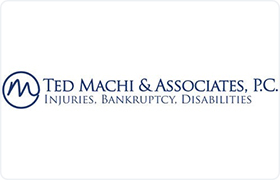Garland Collection Lawyer, Texas
Sponsored Law Firm
-
 x
x

Click For More Info:
-
Machi & Associates, P.C.
1521 North Cooper Street Suite 550 Arlington, TX 76011» view mapAccident & Injury, Bankruptcy, Social Secuirty We Fight So You Don't Have To
Our professional team of attorneys and staff provide the experience and expertise needed to effectively handle your case.
800-804-0771
Michael Raymond Cramer
Business, Business Organization, Collection, Construction, Civil & Human Rights
Mr. Cramer grew up in the piney woods of Mt. Vernon, East Texas before moving to Mesquite, where he graduated from High School in 1986. Following high... (more)
Gaylene Rogers Lonergan
Corporate, Banking & Finance, Collection, Bankruptcy
Status: In Good Standing
Tracey L. Cloutier
Collection, Construction, Construction Liens, Housing & Construction Defects
Status: In Good Standing
Richard D. Pullman
Commercial Leasing, Corporate, Banking & Finance, Collection
Status: In Good Standing
Bill Venegoni
Age Discrimination, Americans with Disabilities Act , Mesothelioma, Collection
Status: In Good Standing
Eric Samuel Weber
Litigation, Employee Rights, Insurance, Collection
Status: Inactive Licensed: 15 Years
 Ted Machi Arlington, TX
Ted Machi Arlington, TX Practice AreasExpertise
Practice AreasExpertise

